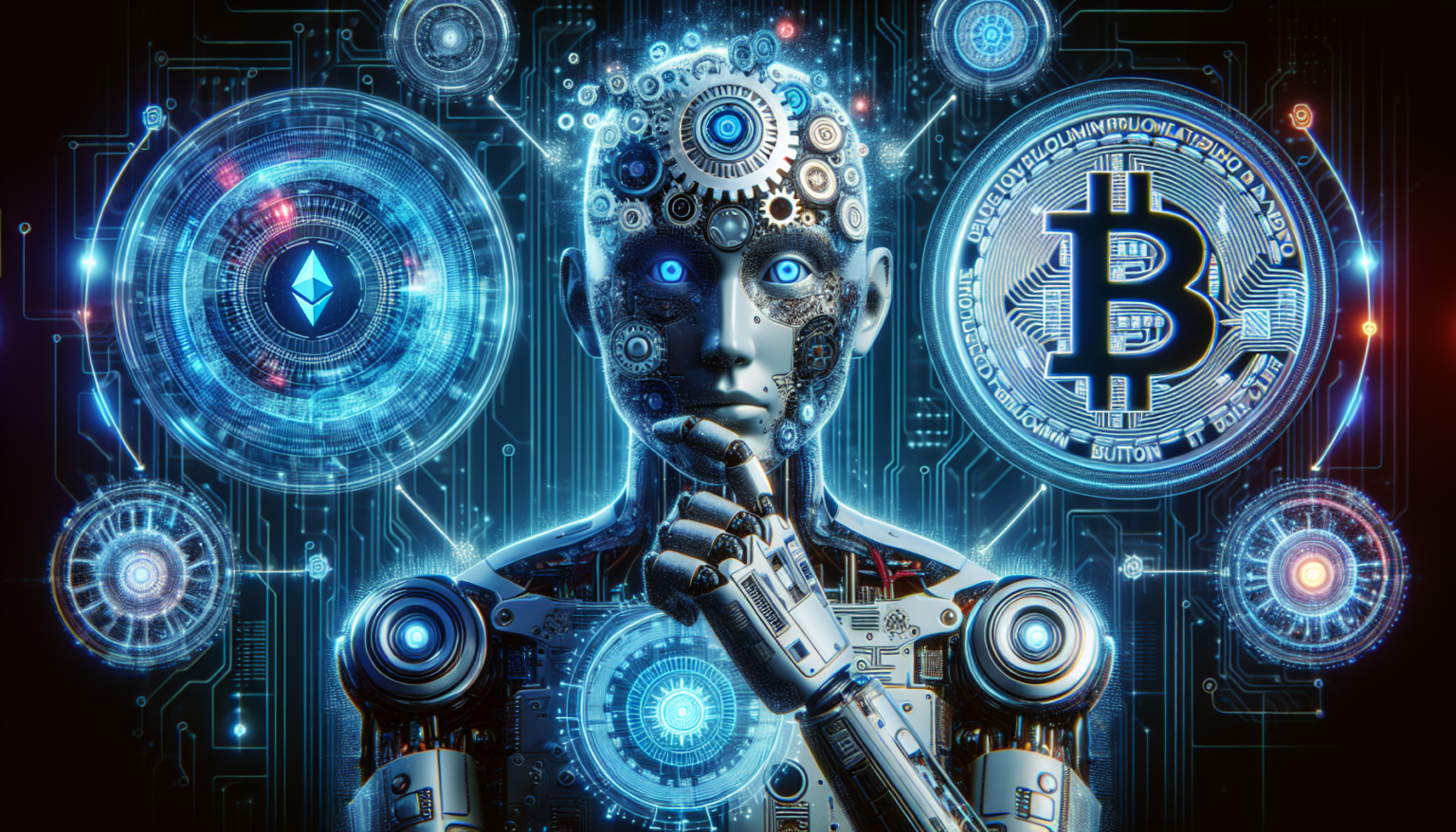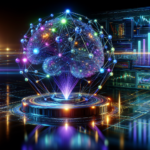The Intersection of Blockchain and AI
Blockchain Technology: A Brief Overview
Blockchain technology, at its core, is a decentralized ledger system that enables secure and transparent transactions. Each block in this ledger contains a set of data that is linked and secured using cryptography, forming a chain of blocks. This decentralized nature ensures that no single entity has control over the information, creating a trustless environment that is crucial for various applications, including finance, supply chain, and increasingly, artificial intelligence (AI).
Understanding Decentralized AI
Decentralized AI refers to the application of artificial intelligence in a manner that is not controlled by a centralized entity. Instead of having a single organization manage and operate AI algorithms and data sets, decentralized AI leverages blockchain technology to distribute these functions across a network. This redistribution not only enhances transparency and security but also democratizes access to AI resources, making it more inclusive.
The Benefits of Decentralized AI
Enhanced Data Privacy
One of the most significant advantages of decentralized AI is the level of data privacy it offers. Traditional AI systems often require vast amounts of data that are usually stored and processed in centralized servers. In contrast, a decentralized approach allows users to retain control over their data while still participating in AI training processes. By keeping sensitive information on local devices or encrypted on the blockchain, users can contribute data without sacrificing their privacy.
Improved Collaboration
Decentralized AI ecosystems facilitate collaboration among various stakeholders without the need for a central authority. Data providers, algorithm developers, and end-users can work together seamlessly. This collaboration fosters innovation, as diverse inputs from a wider range of participants can lead to the development of more robust and versatile AI models.
Incentivized Participation
In a decentralized AI network, participants can be rewarded for their contributions. For instance, data providers might receive tokens or cryptocurrencies for sharing their data, while AI developers could earn rewards for designing more efficient algorithms. This incentivization creates a productive environment where individuals and organizations are motivated to contribute resources and efforts to improve the AI ecosystem.
Key Use Cases of Decentralized AI
Healthcare
In healthcare, decentralized AI can revolutionize patient data management. Patients can control their medical records while still allowing healthcare providers to access the data necessary for treatment. AI algorithms can analyze this decentralized data to identify trends, outcomes, and new medicines without compromising patient privacy. Blockchain-based health data sharing can also foster collaborative research without exposing sensitive information, paving the way for innovative treatments.
Supply Chain Management
Decentralized AI plays a crucial role in enhancing supply chain transparency and efficiency. By using blockchain to track and verify each step of the supply chain, companies can optimize routes, reduce delays, and ensure authenticity. AI algorithms can analyze performance metrics in real-time, enabling businesses to make data-driven decisions that enhance operations and minimize costs.
Finance
In the financial sector, decentralized AI can streamline processes like fraud detection and risk management. By harnessing a broader data set that is secure and immutable, financial institutions can leverage AI to identify unusual patterns and enhance their security measures. Furthermore, decentralized finance (DeFi) projects are beginning to integrate AI technologies, allowing for automated smart contracts and more efficient financial services that do not rely on traditional banking systems.
Smart Cities
As urban areas continue to grow, the concept of smart cities is becoming increasingly relevant. Decentralized AI can help optimize everything from traffic management to energy consumption in such cities. For example, data collected from IoT devices can be processed by decentralized AI algorithms to improve public transportation systems and enhance citizen engagement. Blockchain ensures that the data used in these systems remains secure and tamper-proof.
Challenges and Considerations
Technical Complexities
Implementing decentralized AI is not without its technical hurdles. The integration of blockchain and AI requires a solid understanding of both technologies, making it challenging for organizations that are not equipped with the necessary expertise. Additionally, issues related to scalability and processing power must be addressed, as AI applications often require substantial computational resources.
Regulatory Concerns
The intersection of AI and blockchain raises several regulatory issues. Data privacy laws, such as GDPR in Europe, create complexities concerning how data can be shared and used, especially in sectors like healthcare. Decentralized AI solutions must therefore be designed with compliance in mind to avoid legal pitfalls.
Interoperability Issues
For decentralized AI systems to be truly effective, different blockchains and AI frameworks must be able to communicate with one another. Achieving this interoperability presents a challenge, as varying standards and protocols can hinder seamless data exchange and collaboration across networks.
The Future of Decentralized AI
Emerging Trends
As more organizations explore the potential of decentralized AI, several trends are beginning to emerge. The proliferation of edge computing, where data is processed closer to its source, aligns perfectly with decentralized systems by reducing latency and enhancing speed. Furthermore, the rise of federated learning allows AI models to be trained across decentralized networks without needing raw data to be shared, further enhancing privacy.
Community-Driven Development
In the decentralized AI landscape, community-driven development is gaining traction. Open-source platforms enable developers and researchers to collaborate on AI models and algorithms, accelerating innovation while ensuring that no single entity monopolizes the technology. This community-centric approach democratizes AI research and leads to more ethical and inclusive advancements in the field.
The Role of Ethics in Decentralized AI
As with any technological advancement, ethical considerations must remain at the forefront. Decentralized AI brings unique challenges, particularly regarding bias and accountability. It is crucial for stakeholders to establish governance frameworks that ensure fairness and transparency in AI decision-making while maintaining the decentralized ethos of these systems.
In essence, the rise of decentralized AI is reshaping the landscape of machine learning and technology as we know it. With continued advancements and innovations, we are only beginning to see the potential of these technologies and the incredible possibilities they hold for the future.








